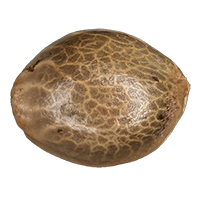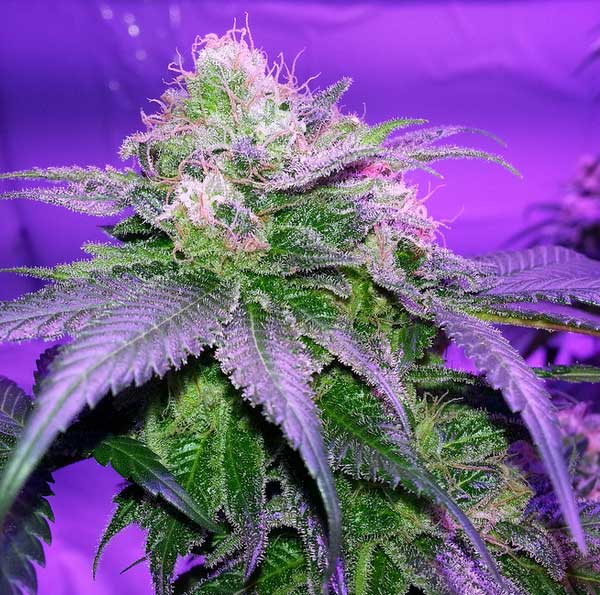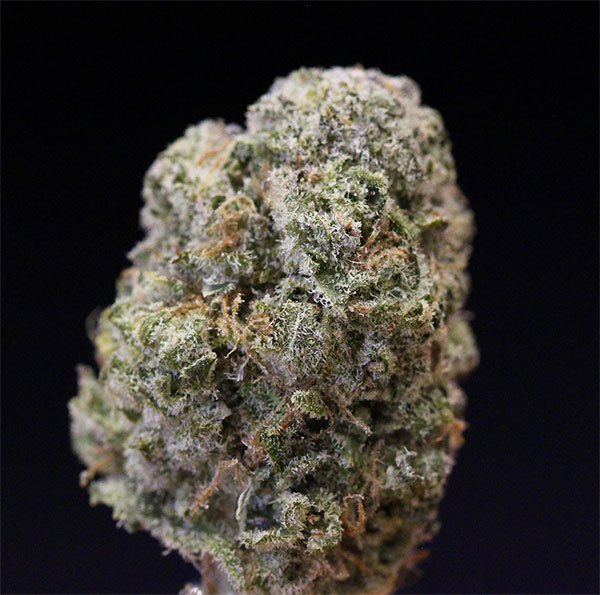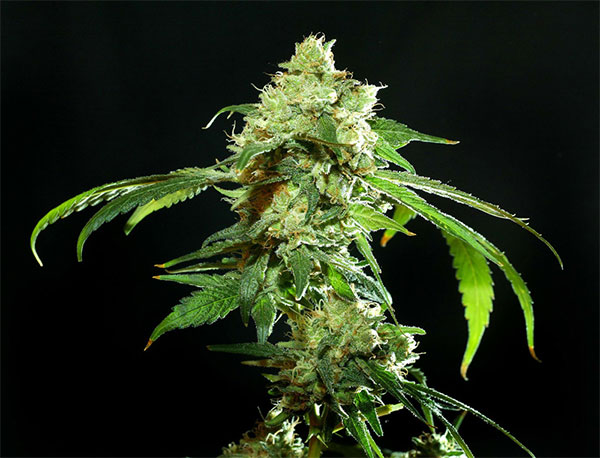Why cannabis is so effective for multiple sclerosis (MS)
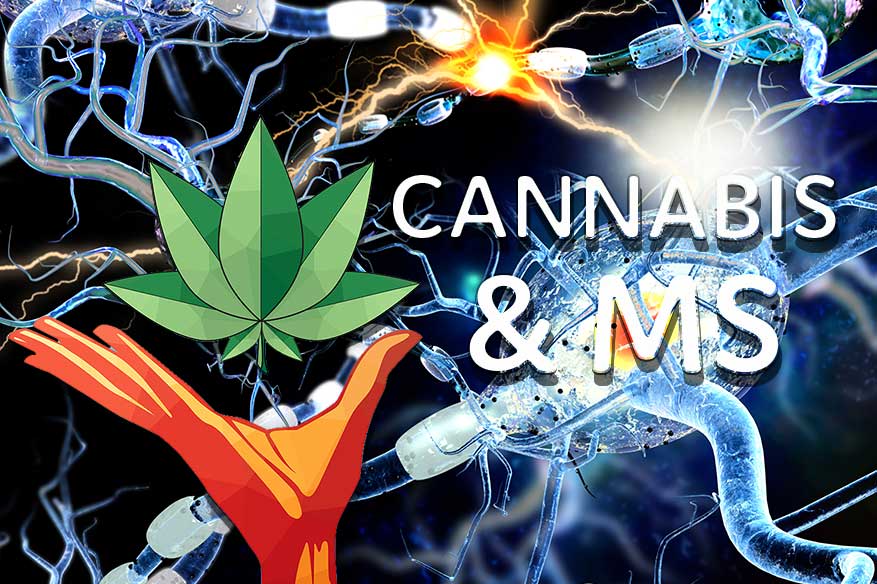
Research around cannabis and MS showed that endocannabinoids can control spasticity in the disease. By triggering the endocannabinoid system with cannabinoids such as THC or CBD, there is a slowing of the immune response. This in turn stops inflammation, eliminates physical negative effects of multiple sclerosis and improves muscle control. Science around the medicinal plant cannabis has come a long way worldwide and has made great strides in understanding cannabis as a treatment for MS. So far, half of all US states legally allow medical cannabis treatment for muscle spasms. We hope for an open understanding and liberal approach in Europe as well.
Conservative medicine views multiple sclerosis as a chronic, inflammatory and degenerative disease with no known cure and no known cause. MS is one of the most common neurological diseases. A thin layer of myelin protects the brain and spinal cord and ensures the smooth transmission of nerve impulses. If this layer is damaged and shows lesions, nerve impulses can no longer be transmitted properly - a kind of "misfiring" occurs, which causes various and often debilitating symptoms.
Scientists believe that MS is an autoimmune disease, whereby the body itself causes molecules to adhere, prompting immune cells to fight inflammation. As a result, damage to the myelin layer occurs. Some scientists believe that MS results from a combination of genetic predisposition, infection and environmental influences. The pharmaceutical medication that exists to treat MS symptoms has significant side effects in addition to a very high price. The most common symptoms of MS include: muscular spasms, (which can also affect the eyes), numbness, weakness, movement disorders, acute or chronic pain. Because conservative treatments have failed to deliver satisfactory results, many MS patients have turned to alternative treatments. Quite a few MS patients worldwide now use cannabis to treat their symptoms.
One of the earliest studies from 1981, which appeared in the National Library of Health, highlighted the positive reports and experiences MS patients had with cannabis inhalation. Cannabis was able to provide relief from spasticity in these patients. This initial study, along with the scientific discovery that cannabis was able to reduce spasticity as shown in animal studies, opened doors for further scientific research in this area.
Initial studies focused solely on observing the effects of cannabis on MS symptoms. Later studies worked to discover the mechanisms and broader therapeutic effects of cannabis. Over time, the benefits and context of cannabis in MS became clearer and more defined. One of the clearest effects identified, among many others, was a reduction in spasticity from cannabis use. The use of cannabis could also reduce pain, including neuropathic pain, remedy sleep disorders, reduce depression and anxiety.
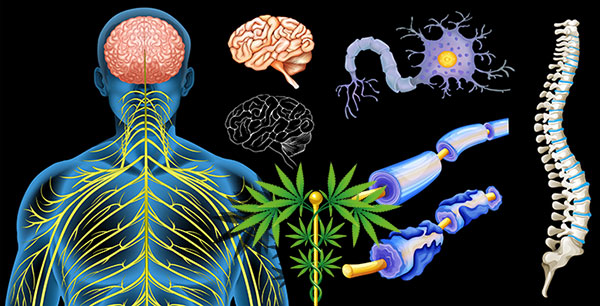
One of the most recent animal studies of the cannabinoid receptors and the Endocannabinoid system gave evidence for an involvement of cannabinoids and an inhibition of deposits in the brain. This in turn may be responsible for some therapeutic effects of cannabis in MS. If clinical trials confirm these findings, scientists will be able to partially understand how the progression of MS can be delayed or even stopped.
Different studies in this area used different methods and approaches, but all came to a common denominator: that cannabis can be a potent aid for patients suffering from MS to alleviate and combat the symptoms of the disease. In addition, it is believed that cannabinoids can slow down the progression of the disease. This offers an overall improvement in the long-term development of MS and increases the quality of life of patients. Some studies have shown that the correct and not too high dose of cannabinoids has hardly any adverse effects and at the same time offers therapeutic effects.
In order to find the right dose as a person affected, many patients feel their way slowly and start with a low amount. The exchange with other patients who have had experiences with cannabis can be helpful for many MS patients.
The majority of all studies used whole cannabis flowers or the pharmaceutical Sativex, a cannabinoid combination of THC and CBD. Both Sativex and the whole cannabis flowers, activate the CB1 and CB2 receptors. Sativas or sativa dominant hybrids usually have a higher THC:CBD ratio.
How cannabis helps with MS
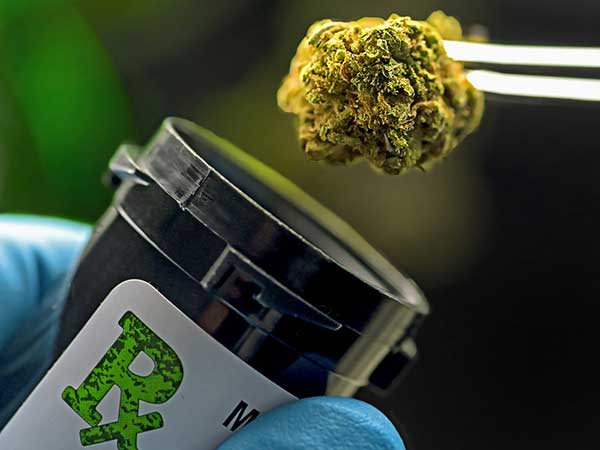
The amazing success of cannabis in treating MS is one of the reasons why the plant has been (re-)legitimised worldwide as a major and important medicinal plant. Cannabis is now legally used for MS treatment in some countries.
- researchgate.net/publication/12172580_Endocannabinoids_control_spasticity_in_a_multiple_sclerosis_model
- ncbi.nlm.nih.gov/pmc/articles/PMC4710104/
Cannabis protects the brain
Inflammation plays a major role in MS and causes many symptoms. Inflammation in the brain causes destruction of neurons and gradual deterioration of the disease. Many of the active components in cannabis, the cannabinoids, are powerful anti-inflammatories. THC and CBD are thought to stop the immune system from launching an attack on the native central nervous system. A calming effect occurs. This is why it is assumed that cannabis could also be effective in other autoimmune diseases, such as lupus.
Cannabinoids promote neurogenesis in adults (creation of new brain cells) and additionally help prevent stress. The compounds in cannabis are powerful antioxidants with neuroprotective properties. Cells and tissues are protected by them.
Cannabis reduces pain
Cannabis helps MS patients to reduce chronic pain. It is now considered a potent analgesic. Cannabinoids such as THC and CBD are able to reduce pain permanently. The anti-inflammatory effects of cannabis also help to combat the cause of pain. Inflammation and pain are known to go hand in hand.
A group of scientists at the University of California in San Diego studied the analgesic effects of cannabis. The clinical trial tested the effects of smoking marijuana on physical pain. 5 minutes after smoking cannabis, there were no effects on pain. However, 45 minutes after smoking, a significant reduction in pain levels was seen in smokers who cosumed medium to large doses of cannabis.
https://www.jci.org/articles/view/25509
Cannabis stops cramps and muscle stiffness
At the Israeli University in Tel Aviv, CBD helped paralysed mice walk again. The mice were in an MS-like condition. The scientists injected them with CBD. As a result, the mice's stiff little legs began to move again. A "small" miracle. The mice treated with CBD also had less damage to nerve cells and less inflammation overall. This proves once again the neuroprotective effect of cannabis, which also shows its effectiveness in MS and goes beyond a mere treatment of the symptoms.
http://onlinelibrary.wiley.com/doi/10.1111/j.1476-5381.2011.01379.x/pdf
Help with gastrointestinal problems
Gastrointestinal problems are common in MS and can greatly reduce quality of life. Cannabis can help. 70% of all immune cells are located in the gut. Amazingly, cannabinoids engage with these immune cells and help fight inflammation.
THC is also able to stimulate appetite and boosts metabolism. Cannabis has the ability to relax muscles and reduce inflammation. These properties are particularly helpful for gastrointestinal problems.
Cannabis promotes sleep
Cannabis can help you fall asleep faster and sleep longer. Heavy indicas are particularly effective. A study by GW Pharma, which tested the effects of CBD and THC in 2000 patients with pain, found that participants slept significantly better and had less pain by taking cannabis.
Cannabis helps sleep more deeply. Patients who use cannabis before bed spend more time in the deep sleep phase. In this phase, the body repairs itself. Bones and muscles are built up during this phase and the immune system is also repaired.
Cannabis improves your mood
As many users know, cannabis can elevate mood and improve stress-related depression. Researchers at the University of Buffalo discovered that rats under chronic stress produce fewer endocannbinoids. These rats with low endocannabinoid levels were given additional cannabis. As a result, there was an increase in cannabinoids in the brain and at the same time reduced depression symptoms in the rats. Chronic stress is considered one of the main causes of depression in adults. Within the disease MS, depression can easily occur, with cannabis being a promising treatment option with few to no side effects.
http://www.buffalo.edu/news/releases/2015/02/004.html
Cannabis protects the eyes
In connection with MS, difficulties in seeing can occur or uncontrolled eye movements or an inflamed optic nerve. Here, too, inflammation is the trigger. If inflammation persists for a longer period of time, it can cause degenerative eye problems. The neuroprotective properties of cannabis can also be effective here in alleviating symptoms and sequelae.
A 2007 study found that the endocannabinoid system is dysregulated in multiple sclerosis (and in experimental autoimmune disease). Therefore, targeting the endocannabinoid system would be extremely useful for the treatment of MS.
http://citeseerx.ist.psu.edu/viewdoc/download?doi=10.1.1.328.8073&rep=rep1&type=pdf
How MS patients use cannabis
In the treatment of MS, patients and specialised doctors use cannabis tinctures and oils or use cannabis in various prescriptions (edibles). Often 3x per day to achieve the best effects. Vaporised cannabis is better than smoked cannabis because there is no burning process.
5 Cannabis Strains for MS
1. lavender
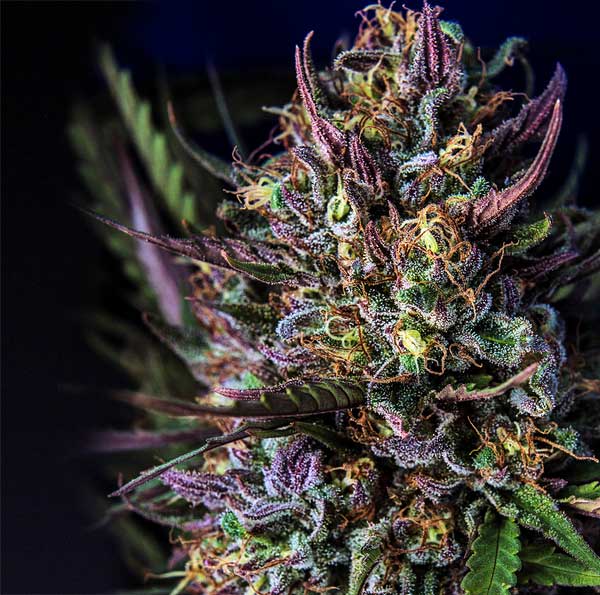
The famous Lavender is a blend of wonderful colours, intense tropical aromas and valuable medicinal effects. It has a strong analgesic effect and relaxes the muscles. Its high is euphoric and relaxing at the same time.
2. CBD Queen by Cannamed:
CBD Queen has a very high CBD content, has mood-lifting effects and relaxes the muscles. It is the ideal strain for the day because it relaxes but does not make you tired.
3. S.A.D. from Sweet Seeds:

SAD is an indica dominant strain that is especially suitable for evening use. It has a very high THC content and provides deep relaxation. It helps fight pain, relaxes muscles and is highly anti-inflammatory.
4. kryptonite from Pyramid Seeds
Kryptonite by Pyramid Seeds is a first-class indica hybrid with an incredibly strong relaxing body high. At the same time, the strain is a good choice for patients looking for pain relief.
5. cannatonic from Resin Seeds
Cannatonic is a very interesting hybrid for MS patients. Its smell is like a sativa and its growth structure is typical of an indica. Cannatonic has almost a 1:1 THC:CBD ratio. The buds are dense and covered with a thick honey-like layer. The body high of Cannatonic is relaxing and long lasting. The low THC content keeps you clear and focused while enjoying the muscle relaxing, pain relieving and de-stressing benefits of cannabis.


